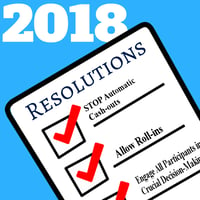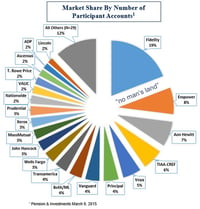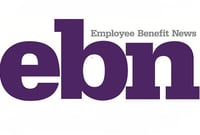Consolidation Corner
-
Blog
- 401k Cash Outs
- 401k Consolidation
- 401k Plan Termination
- America's Mobile Workforce
- Assisted Roll-in
- Auto Enrollment
- Auto Portability
- Auto Portability Simulation
- Automatic Roll-In
- Automatic Rollover
- Automatic Rollovers
- Boston Research Technologies
- CARES act
- Common Mistakes
- DIY Roll-In
- DOL Advisory Opinion
- EBRI
- Employee Benefit News
- ERISA Advisory Council
- Financial Services Roundtable
- Financial Wellness
- How-To
- In-Plan Consolidation
- Leakage
- Lifetime Plan Participation
- Lost Participants
- Managed Portability
- Mandatory Distributions
- MarketWatch
- Missing Participant IRA
- Missing Participants
- National Retirement Savings Cash Out Clock
- Participant Transition Management
- PLANSPONSOR
- Portability Services Network
- PSCA
- Public Policy
- RCH Services
- Retirement Income
- Retirement Plan Portability
- retirement research
- Retirement Savings Consolidation
- Retirement Savings Portability
- Roll-In
- Safe Harbor IRA
- Saver's Match
- Security
- Small Accounts
- Stale Dated Checks
- Synthetic Tenure
- Uncashed Check Services
- Uncashed Distribution Checks
- Video
- Webcast
- What is a Missing Participant?
Mandatory Distributions (2)
Consolidation Corner Blog
Consolidation Corner is the Retirement Clearinghouse (RCH) blog, and features the latest articles and bylines from our executives, addressing important retirement savings portability topics.
Missing Participants: An Ounce of Prevention Equals a Pound of Cure
 When Ben Franklin coined the adage “an ounce of prevention is worth a pound of cure” he wasn’t considering the problem of missing participants, but 401(k) plan sponsors would be wise to heed Ben’s sage advice.
When Ben Franklin coined the adage “an ounce of prevention is worth a pound of cure” he wasn’t considering the problem of missing participants, but 401(k) plan sponsors would be wise to heed Ben’s sage advice.
Today, plan sponsors face an explosion of missing participants, driven by the ongoing adoption of auto enrollment and increasing workforce mobility. Their problems are further compounded by the administrative burden required to locate them, combined with a regulatory minefield that offers little guidance and is prone to taking inconsistent enforcement actions.
The Most Urgent New Year’s Resolutions for Plan Sponsors
 How are you hoping to improve yourself in 2018?
How are you hoping to improve yourself in 2018?
The most common New Year’s resolutions usually have to do with personal appearance, health, or behavior—losing weight, exercising more, dieting, quitting smoking, etc. Popular polls indicate that many of us are after a slimmer, fitter body for ourselves after each New Year’s Day.
Similarly, defined contribution plan sponsors are likely thinking about how they can make their plans more attractive and streamlined in 2018.
The Stealth Solution to America’s Retirement Savings Crisis
 Over the past year, the Department of Labor’s Fiduciary Rule has been highly-visible, presenting major ramifications for the retirement industry and looming large on the radar screens of retirement services providers.
Over the past year, the Department of Labor’s Fiduciary Rule has been highly-visible, presenting major ramifications for the retirement industry and looming large on the radar screens of retirement services providers.
The underlying rationale for the rule, as stated by the Obama administration in an April 6, 2016 press briefing, was to save retirement investors $17 billion per year in lost retirement savings that result from conflicts of interest in retirement advice. Certainly, anything that protects $17 billion in retirement savings is a worthy goal, if it helps more Americans meet their retirement income needs.
However, there’s a larger hole in our retirement system – cash-out leakage – that inflicts far greater harm to American retirement savers, yet this threat continues to fly beneath our collective radar.
Incubate Small Retirement Accounts, Don’t Throw Them Away
 On February 3rd, the U.S. Chamber of Commerce, the world’s largest business federation representing the interests of more than 3 million businesses, released Securing America’s Retirement, their legislative roadmap aimed at strengthening the U.S. retirement system.
On February 3rd, the U.S. Chamber of Commerce, the world’s largest business federation representing the interests of more than 3 million businesses, released Securing America’s Retirement, their legislative roadmap aimed at strengthening the U.S. retirement system.
The Chamber’s goals are admirable.
Why Small Balance Cash Outs Are Falling Through the Cracks
 According to the recently released 2016 Willis Towers Watson U.S. Retirement Governance Survey, a major trend in retirement plan governance is the growing concern employers have for employees’ retirement benefit adequacy and financial well-being. To address this concern, sponsors indicated plans to increase monitoring of participant behaviors, using metrics such as plan participation and contribution rates, as well as carefully tracking the performance of their plans’ investment managers.
According to the recently released 2016 Willis Towers Watson U.S. Retirement Governance Survey, a major trend in retirement plan governance is the growing concern employers have for employees’ retirement benefit adequacy and financial well-being. To address this concern, sponsors indicated plans to increase monitoring of participant behaviors, using metrics such as plan participation and contribution rates, as well as carefully tracking the performance of their plans’ investment managers.
Force Outs: Recycle v. Landfill
 Every day, we’re reminded that recycling is the responsible thing to do: from the recycling bins we walk by, to the paper we use, and the cans and bottles that we drink from. All of us would agree that conservation of our precious resources is critical, so we gladly pitch in and do our part.
Every day, we’re reminded that recycling is the responsible thing to do: from the recycling bins we walk by, to the paper we use, and the cans and bottles that we drink from. All of us would agree that conservation of our precious resources is critical, so we gladly pitch in and do our part.
A Blueprint for Lifetime Participation in Plans
 How many of us will be so fortunate as to participate in an employer-sponsored retirement plan every day of our working careers? Or, for an even more uncommon scenario, how many of us will work for the same company for 30 or 40 years? Yet, as has been amply established by the Employee Benefit Research Institute (EBRI), those who can raise their hands and respond “yes” to either of these questions routinely show up in the top decile of savers who are well-prepared for retirement—and these participants provide a clear blueprint for retirement-saving success.
How many of us will be so fortunate as to participate in an employer-sponsored retirement plan every day of our working careers? Or, for an even more uncommon scenario, how many of us will work for the same company for 30 or 40 years? Yet, as has been amply established by the Employee Benefit Research Institute (EBRI), those who can raise their hands and respond “yes” to either of these questions routinely show up in the top decile of savers who are well-prepared for retirement—and these participants provide a clear blueprint for retirement-saving success.
Deadlines for Year-End Plan Terminations, Mandatory Distributions Fast Approaching
At Retirement Clearinghouse (RCH), the 4th quarter is the busiest time of the year, as many plan sponsors look to complete plan terminations and mandatory distributions before the end of the year. However, to follow appropriate communication timeframes, deadlines to initiate the necessary communications process needed to complete these year-end plan initiatives are fast approaching.
One Solution to Three Costly Retirement-Saving Mistakes
 In his September 2nd, 2015 MarketWatch article One Solution to Three Costly Retirement-Saving Mistakes, RCH’s CEO Spencer Williams provides insight as to why a majority of Americans are not very confident in their retirement readiness. Three costly mistakes consistently plague retirement savers: 1) leaving 401(k) accounts behind when changing jobs, 2) prematurely cashing out and 3) not informing prior employers’ retirement plan record-keepers about address changes.
In his September 2nd, 2015 MarketWatch article One Solution to Three Costly Retirement-Saving Mistakes, RCH’s CEO Spencer Williams provides insight as to why a majority of Americans are not very confident in their retirement readiness. Three costly mistakes consistently plague retirement savers: 1) leaving 401(k) accounts behind when changing jobs, 2) prematurely cashing out and 3) not informing prior employers’ retirement plan record-keepers about address changes.
Automatically Moving Mandatory Distributions Forward
The Case for Automatically Moving Mandatory Distributions Forward
The mandatory distribution-to-Safe Harbor IRA plan feature as commonly utilized today was conceived in 2001 and launched in 2005 with good intentions, and for valid reasons. A mobile workforce, combined with a lack of retirement savings portability, had created a burgeoning problem for plan sponsors: an explosion of small-balance (less than $5,000) accounts left “stranded” in-plan, resulting in rampant cashouts, missing participants, uncashed distribution checks and the like. These problems only accelerated with the widespread adoption of auto enrollment, beginning in 2009.
-
Blog
- 401k Cash Outs
- 401k Consolidation
- 401k Plan Termination
- America's Mobile Workforce
- Assisted Roll-in
- Auto Enrollment
- Auto Portability
- Auto Portability Simulation
- Automatic Roll-In
- Automatic Rollover
- Automatic Rollovers
- Boston Research Technologies
- CARES act
- Common Mistakes
- DIY Roll-In
- DOL Advisory Opinion
- EBRI
- Employee Benefit News
- ERISA Advisory Council
- Financial Services Roundtable
- Financial Wellness
- How-To
- In-Plan Consolidation
- Leakage
- Lifetime Plan Participation
- Lost Participants
- Managed Portability
- Mandatory Distributions
- MarketWatch
- Missing Participant IRA
- Missing Participants
- National Retirement Savings Cash Out Clock
- Participant Transition Management
- PLANSPONSOR
- Portability Services Network
- PSCA
- Public Policy
- RCH Services
- Retirement Income
- Retirement Plan Portability
- retirement research
- Retirement Savings Consolidation
- Retirement Savings Portability
- Roll-In
- Safe Harbor IRA
- Saver's Match
- Security
- Small Accounts
- Stale Dated Checks
- Synthetic Tenure
- Uncashed Check Services
- Uncashed Distribution Checks
- Video
- Webcast
- What is a Missing Participant?
